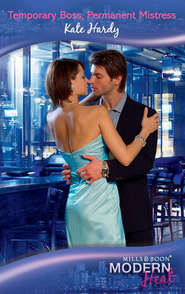По всем вопросам обращайтесь на: info@litportal.ru
(©) 2003-2024.
✖
His Honourable Surgeon
Автор
Год написания книги
2018
Настройки чтения
Размер шрифта
Высота строк
Поля
Half her problems had stemmed from going to a single-sex school where she just hadn’t fitted in. If she’d gone to a co-ed school, things might have been very different. ‘Let me give you a little bit of advice,’ she said softly. ‘Try chatting to the girls.’ Ten was an awkward age: boys still thought that girls were silly, and it was uncool to be seen talking to them. But what did Declan have to lose? Nothing but his loneliness. ‘You might find some of them like the same things you do.’
‘Girls don’t like Game Boys,’ Declan said. ‘Or the Romans.’
‘I liked computers when I was your age,’ Vicky told him. ‘So I reckon you might be in for a nice surprise. Give it a try. What have you got to lose?’ She smiled at him. ‘Now, Hugh here’s going to take you off for a scan, and I’m going to have a chat with your mum.’
‘Don’t tell school,’ Declan said. ‘Don’t tell them.’ He nearly choked. ‘Don’t say what I told you. Please, don’t.’
‘It’s OK,’ Vicky soothed. ‘There’s nothing to worry about, I promise.’
Mrs Foster had clearly only just been holding it together, because a tear leaked down her face when Hugh wheeled Declan out. ‘I’m sorry,’ she said, wiping a hand across her face. ‘I just feel so useless. I had no idea he was being bullied—what kind of parent does that make me?’
‘A normal one,’ Vicky reassured you. ‘Believe me, it can be very hard to tell if kids are being bullied. Sometimes they go a bit quiet, sometimes they go the other way. But until they’re ready to tell you, you won’t know.’ She’d done that herself. Kept it in, because she’d believed it was her fault and if anyone knew they’d despise her and treat her like dirt, too.
‘Oh, God. I don’t know what those little bastards have done to him. Or how long it’s been going on—he won’t say.’
‘When you’re bullied, you try to hide it—you don’t want anyone knowing, in case the bullies get in trouble, because you’re scared that then it’ll get worse,’ Vicky said gently. ‘Or that somehow it’s your fault, because you’re different in some way—whether it’s the way you talk, the colour of your hair, or you’ve got freckles. Whatever distinguishes you. But at least you know now, so you can help him. Keep his self-esteem high by praising him and making it specific so he knows you mean it and you’re not just being nice, and maybe get him some martial arts lessons.’
‘So he can hit back, you mean?’
‘So he can defend himself against physical stuff,’ Vicky corrected her dryly. ‘Mrs Foster, I need to know a few things about Declan before I can do anything to treat him. Would you mind answering a few questions for me, please?’
Mrs Foster nodded. ‘If I can.’
‘Has he had any previous head injuries?’
‘Not that I know of.’
Good. ‘Is there any family history of easy bruising, or bleeding that doesn’t stop?’
‘No.’
Even better. ‘Has Declan ever had a cerebral shunt?’
‘What’s one of those?’ Mrs Foster asked.
‘If he’d had hydrocephalus as a child, we would have operated to put a special valve in his head to drain off excess fluid—and it would have been replaced several times before now as he grew bigger,’ Vicky explained. And Mrs Foster would definitely have known what a cerebral shunt was—the fact she’d asked meant it was highly unlikely Declan had had one.
Mrs Foster shook her head. ‘No, nothing like that.’
‘Does he have any allergies—penicillin or anything like that?’
‘No. He’s always been so healthy.’
Even so, Vicky needed to ask the last question. ‘Is he taking any medication?’
‘No. What’s wrong with him?’
‘I’ll know more when I see the results of his scan, but I think he’s got a subdural haematoma. That’s a blood clot between the tissue of his brain and the membrane called the dura mater, which goes between his brain and his skull. It sometimes happens after someone bangs their head hard—the bridging veins between the brain and the membrane stretch and tear, a bit of blood leaks out and forms a clot.’
Mrs Foster’s face turned a shade paler. ‘Does that mean you’ll have to operate?’
‘I won’t know until I see the scan,’ Vicky answered honestly. ‘Sometimes we can treat it without operating—just by careful monitoring—because smaller ones tend to go away on their own, but sometimes we need to operate before it puts too much pressure on the brain.’
‘Oh, my baby,’ Mrs Foster whispered.
‘Is there anyone we can call for you?’
‘M-my husband’s on his way.’
‘Good. If you want me to run through anything with you again, or you’ve got any questions, just let me know. That’s what I’m here for.’
Mr Foster had arrived by the time Declan had had his scan. Vicky reviewed the files and pointed out one area to Hugh. ‘I’m really not happy about this. I’m going to have to take him to Theatre.’ She went back in to see Declan and his parents.
‘Was the scan all right?’ Mr Foster asked.
‘I’m afraid not,’ Vicky said gently. ‘It showed me there’s a clot forming between Declan’s brain and the membrane covering it. It’s pressing down on the brain and causing pressure, which makes the brain swell and not enough oxygen gets to it—that’s why Declan’s finding it a bit difficult to see and why he’s sounding a bit confused. The good news is that I can operate—he’ll have a general anaesthetic, and I’ll cut a tiny lid into his skull so I can get the clot out. He’ll need to be in here for about a week so we can keep an eye on him, but he should be fine.’
‘Is he going to die?’ Mrs Foster mouthed, turning her face away so Declan wouldn’t see the question.
‘There are risks, yes, but it’s much safer to do the operation than to leave it,’ Vicky said quietly. ‘He’ll have a headache afterwards, but he won’t be in any real pain.’
‘I’ll kill them,’ Mr Foster said between gritted teeth. ‘I’ll kill them for what they’ve done to our Declan. Just leave me on my own with them with a cricket bat.’
‘Neil, no,’ Mrs Foster said. ‘You can’t do that. That makes you as bad as they are.’
‘Well, they’re not going to get away with it,’ Mr Foster declared.
‘There are things you can do,’ Vicky said quietly. ‘But, right now, let’s concentrate on getting Declan sorted.’
While Declan was being prepped for Theatre, Vicky rang up to the ward. ‘I’m going to be in Theatre Five.’ And this was the bit she’d been dreading and looking forward to at the same time. ‘Could you page Mr Lewis?’ It didn’t really matter whether she led or assisted: this was where she’d see what he was made of, and whether he was better with patients than he was with the staff. Or, at least, than he was with her.
She’d just scrubbed up when he came into the room. ‘What have we got?’
‘Craniotomy, to remove a subdural haematoma. The files are there, if you want to take a look.’
Jake reviewed the files swiftly. ‘Good call. Have you done a craniotomy before?’
She nodded. ‘I’d use a linear incision rather than the standard reverse question-mark incision in this case. We’ve pinpointed exactly where the haematoma is—and a linear incision will mean we spend less time controlling bleeding and it reduces surgery time.’
Jake’s dark, dark eyes appraised her—and she thought she saw the glimmering of respect. But luckily she was prepared for his next comment. ‘Good call. I’ll lead, you assist.’
She’d told herself it didn’t matter: but it did. ‘How about I lead,’ she said, ‘and if you don’t like the way I do it, you can take over?’
He finished scrubbing up before he answered her. ‘All right. But you talk me through exactly what you’re doing and why.’
Her mouth tightened behind her mask. ‘Like a junior?’
‘Like any other senior registrar on their first operation with a new consultant. It’s a quick way of getting to know how we both work.’











